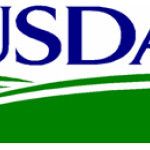- Industrie: Government
- Number of terms: 41534
- Number of blossaries: 0
- Company Profile:
A P.L. 480 provision added by the Food Security Act of 1985 that allows private voluntary organizations to sell a small percentage of donated P.L. 480 commodities within the recipient country. The currency generated by these sales can then be used for such purposes as defraying the cost of food distribution within the country.
Industry:Agriculture
A program authorized by the emergency provisions of the FY1999 USDA appropriations act (P.L. 105-277, October 21, 1998) that makes interest-free recourse loans of $2.00 per pound on mohair produced prior to October 1, 1998. Final date to obtain a loan is September 30, 1999. The producer-owned mohair used as loan security must be stored in approved bonded warehouses. Loans mature not later than 1 year following disbursement. The program is administered by the Farm Service Agency.
Industry:Agriculture
A bank is created when wetlands at a site are restored, enhanced or created in advance of destruction of similar wetlands in nearby locations. The bank then sells "credits" in the bank to permit applicants under Section 404 who are required, as a permit condition, to offset the negative impacts their project will have on wetlands. Banks may be established by public entities or private enterprise. The FAIR Act of 1996 has a provision allowing USDA to establish a pilot banking program.
Industry:Agriculture
A system whereby the adverse impacts of an activity on the environment are minimized or cancelled by requiring the party to limit the action or replace the resources affected; the term is commonly used in connection with §404 of the Clean Water Act to require parties who drain wetlands to mitigate by constructing or restoring wetlands of equal size somewhere else on the property. The 1990 farm bill amends swampbuster to provide for mitigation.
Industry:Agriculture
Oilseed crops other than soybeans and peanuts; usually a reference to the other oilseeds eligible for marketing assistance loans under the FAIR Act of 1996 (sunflower seed, canola, rapeseed, safflower, mustard seed, and flaxseed).
Industry:Agriculture
Crops that may be high in value but that are not widely grown. Many fruits, vegetables, and tree nuts come under this definition. The IR-4 program is one publicly funded program to help producers of minor crops with their unique problems.
Industry:Agriculture
The minimum soil manipulation necessary for crop production. Conservation tillage, reduced tillage, and no-till farming are related terms.
Industry:Agriculture
In the Uruguay Round Agreement on Agriculture, countries are obliged to provide minimum levels of imports for products subject to tariffication. Access is assured by tariff-rate quotas.
Industry:Agriculture
Refers to foods that may not be sold in competition with the school lunch and breakfast programs. These are foods that USDA has determined contain little if any nutritional value. For example, sugar candy, soda pop without fruit juices, and chewing gum are considered to be foods of minimal nutritional value. Candy containing nuts or chocolate is considered to have some nutritional value.
Industry:Agriculture
A component of the basic formula price for farm milk used in federal milk marketing orders. It is a survey of the average price Minnesota and Wisconsin plants are paying farmers for Grade B milk to be used in processed dairy products.
Industry:Agriculture
